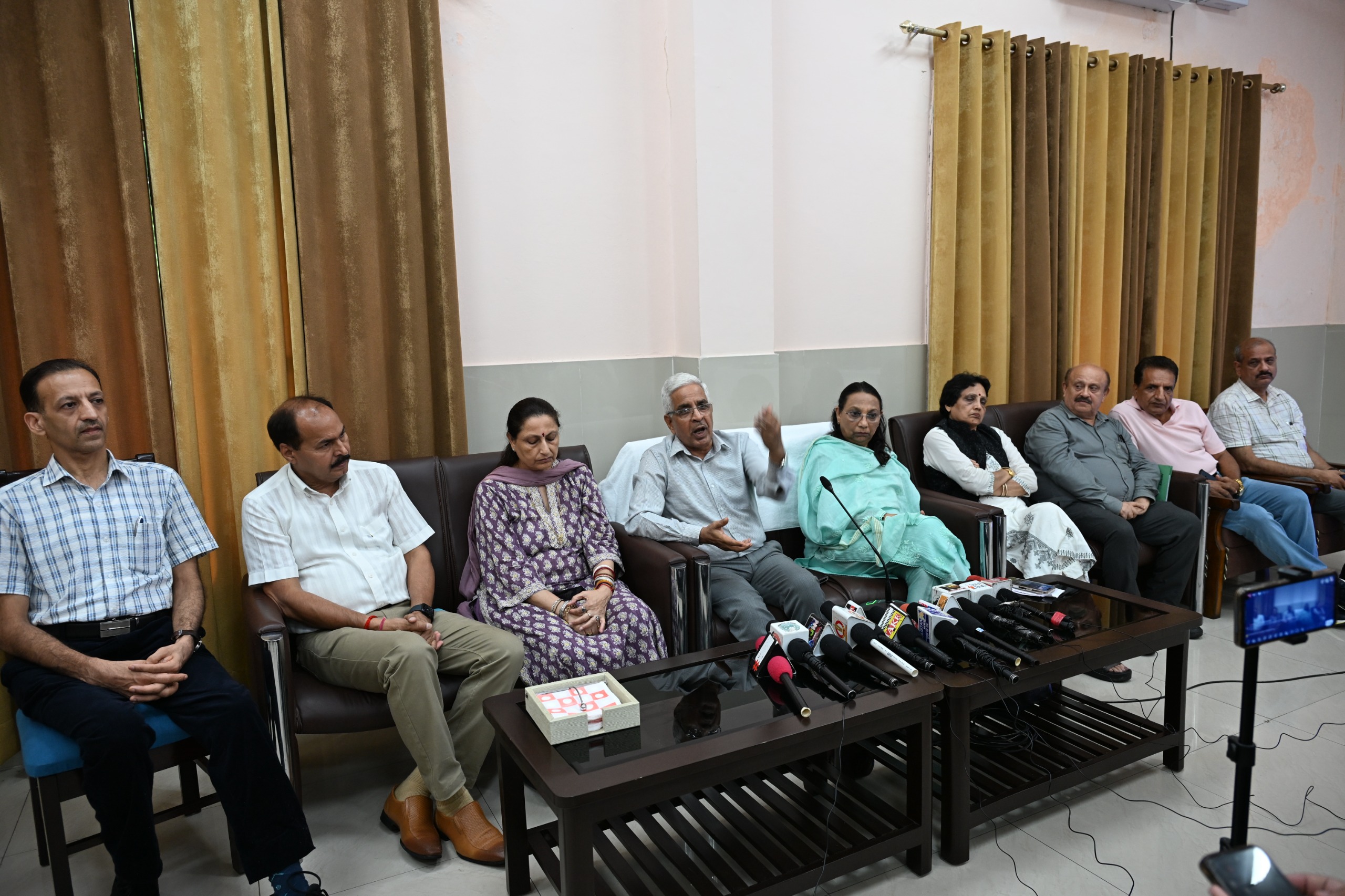About University

Cradled in the lap of mountains at the foothills of auspicious Trikuta, besides the river Tawi at an altitude of 1030 ft. is Jammu. This 'city of temples' has many places...
JU launches 5 year integrated UG programme in Mathematical Sciences
Initiative a step toward creating future-ready, skilled graduates aligned with NEP 2020: VC

Jammu, July 21: Stressing the importance of skill-based education aligned with evolving market demands, the University of Jammu has launched a pioneering Five-Year Integrated Undergraduate Programme in Mathematical Sciences, bringing together the core disciplines of Mathematics, Statistics, and Computer Science under a single academic framework. Announcing the initiative at a press conference, Vice Chancellor Prof. Umesh Rai stated, “With this integrated programme, we are not just offering another academic pathway—we are equipping our students with the essential tools of the future: data literacy, analytical thinking, and computational skills, all grounded in an interdisciplinary framework envisioned by NEP 2020.”
Elaborating on the programme’s vision, Prof. Rai said the initiative reflects the University’s academic pledge of “Dissolving Boundaries, Evolving Education”.
“By bringing together Mathematics, Statistics, and Computer Science under a single, integrated academic framework, we are collapsing traditional subject boundaries and building a programme that reflects both academic depth and market relevance,” he said. Prof. Rai emphasised that the course goes beyond conventional teaching and aims to nurture innovation, creativity, and adaptability among students through training in problem-solving, coding, AI, and domain-specific data analysis.
He further highlighted the academic flexibility built into the programme, which allows students to explore a broad spectrum of disciplines in the initial phase and choose their specialisation in the fourth semester (second year) whether in Mathematical Sciences or in Humanities, Social Sciences, or Commerce. “This freedom to design one’s own academic journey is at the heart of NEP 2020—and this programme reflects that spirit fully,” he noted. Students who have passed Class 12 in Arts, Commerce, or Science streams are eligible for admission to the program, he added.
The new programme is structured with multiple entry and exit options, offering students the flexibility to personalise their academic journey. It focuses on building strong foundations in AI, machine learning, data analytics, scientific computing, and algorithmic thinking, while also enabling exposure to subjects across disciplines through elective baskets. Co-curricular and sports activities will also carry credit weightage under the NEP model, ensuring a well-rounded and holistic academic experience.
Prof. Anju Bhasin, Dean Academic Affairs, while interacting with media persons called the programme a forward-looking response to evolving industry needs. “Mathematics is no longer limited to traditional fields—it is becoming central to law, humanities, social sciences, and business, especially with the rise of AI and data,” she said. Prof. Bhasin described the programme as a rigorous yet flexible learning model that empowers students to think critically and apply skills across contexts. “It’s not just about knowledge. It’s about developing the capacity to adapt, solve problems, and lead in an interdisciplinary world,” she added.
Prof. Neelu Rohmetra, Dean Research Studies, said the programme was conceived in response to the mismatch between higher education outcomes and employability. “This course brings together computation, data, and mathematical logic in a way that directly responds to market demands,” she said. Prof. Rohmetra pointed out that many students, even at the postgraduate level, struggle in the job market because of a lack of real-world, certifiable skills. “By starting early—right after Class 12—we are building students’ confidence and competence with tools like data modelling, forecasting, and web design,” she noted. She praised the voluntary collaboration of the three departments and called it a landmark in J&K’s academic landscape.
Providing structural details of the programme, Prof. J.P. Singh Joorel, Head, Department of Statistics, shared that the course will be delivered by the faculty members from all the three departments, ensuring that each subject is taught by experts. “This is not a symbolic merger. The academic integrity of each discipline will be maintained, while creating meaningful crossovers for students,” he said. The intake for the first batch is limited to 60 seats, and the online application portal is live. “This is the first time such a programme is being offered in Jammu and Kashmir, and we hope it becomes a model for integrated, future-ready education in India,” he added.
Also present at the press briefing were Prof. Sangeeta Gupta, Dean Planning and Development Dr. Neeraj Sharma, Registrar, Prof. Pawanesh Abrol, Prof. Vibhakar Mansotra, Head Departmentof Computer Science and IT, Prof. Romesh Kumar, Head Department of Mathematics, Prof. Rahul Gupta and Prof. Parmil Kumar.